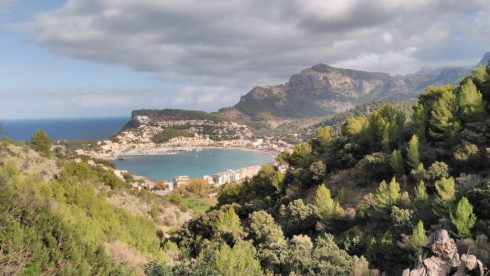SPAIN’S governing Socialist Party (PSOE) has finally reached an agreement with Catalan separatist parties over a future amnesty law, which, if passed, will see anyone involved in the independence drive in the northeastern region over the last decade pardoned or escape prosecution.
Speaking to reporters on Thursday morning, the minister for the prime minister, justice and parliamentary relations, Felix Bolaños, did not go into the detail of the amendments to the existing draft law that had been agreed between his party and Catalan groups Junts pel Si and the Catalan Republican Left (ERC).
But he did say that the three groups had reached the ‘definitive’ approval of the text of the law, after intense talks over recent days in a bid to unblock the situation.
“We are leaving behind a decade of collective failure and we are opening a new era in Catalonia of agreements, investments and the future,” he said.
The PSOE leads a minority government, and governs in coalition with the leftist alliance Sumar. In order to pass legislation, it has to rely on smaller, regional groups such as Junts and the ERC, but will also need the backing of other parties in Congress if the amnesty law is to be approved.
Bolaños also called on these groups to support the legislation.
“We are going to try to get [the law] signed by all of the groups who want to join this major deal, and as soon as they see it and sign it, it will be made public in all of the media,” he said, in comments reported by news agency Europa Press.
The most high-profile figure who will benefit from the amnesty law is the leader of Junts, Carles Puigdemont. The politician, who is a Member of the European Parliament, has been living in self-imposed exile in Belgium since 2017 when he fled Spain to escape prosecution.
He is still wanted by the Spanish justice system for his key role in the events of that year, when an illegal referendum on secession from Spain was held on October 1, followed by a unilateral declaration of independence.

One of the sticking points in the negotiations over the amnesty law was related to terrorism offences. Junts, which lent its support to Pedro Sanchez’s successful bid to be reelected as prime minister in exchange for this amnesty law, rejected the first draft of the legislation, due to a clause covering terrorism offences.
Puigdemont could be facing charges for terrorism over his alleged role in protests in Catalunya that saw demonstrators storm the El Prat airport in October 2019.
The new draft of the law, according to Bolaños, will ensure that ‘all of the people involved in the independence process will enjoy amnesty, all of them’.
This was an apparent veiled reference to Puigdemont, and how the wording of the law will avoid him facing such prosecution.
Bolaños did make clear, however, that the law is ‘absolutely respectful with the separation of powers,’ and that it would be judges who ‘have the last word’ when it comes to granting amnesty to those involved in the independence drive.
According to the PSOE, the amnesty will cover the misuse of funds when they were allocated to the independence drive (and not taken for personal gain), as well as terrorism offences, excluding the most serious crimes.
The amnesty law has been highly controversial since it was first mooted, and the opposition Partido Popular (PP) wasted no time in using it to attack the government.
The leader of the conservative party, Alberto Nuñez Feijoo, said today that the deal with the separatist parties was going to ‘leave very serious offences against the heart of the European Union unpunished’.
Speaking at a meeting of the European Popular Party (PPE) in Bucharest, the politician said that the crimes that will be pardoned were ‘terrorism offences, the misuse of public funds, and the declaration of independence of part of a member state’.
He said that the government was ‘ever-more cornered and easier to extort by those who are putting the rule of law as their price’.
Sources from the PP told news agency Europa Press on Wednesday that they would be challenging the amnesty law in the courts.
Read more:
- Spain’s opposition Partido Popular in chaos after leader Alberto Nuñez Feijoo makes ‘off the record’ U-turn on Catalan amnesty
- Spain’s controversial amnesty law for Catalan separatists passes first hurdle in Congress after bitter debate
- Spain’s caretaker prime minister voices strongest backing yet for Catalan amnesty











